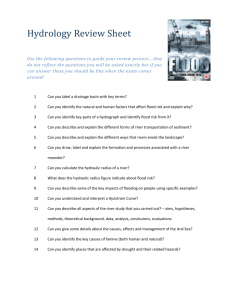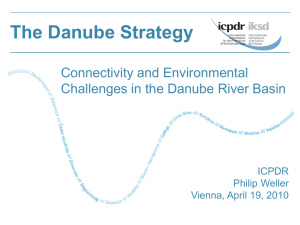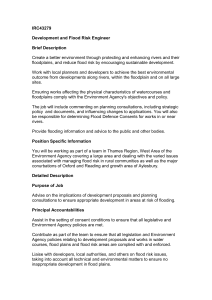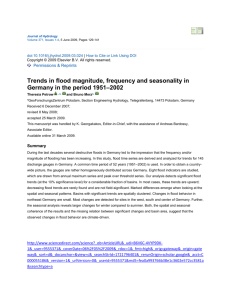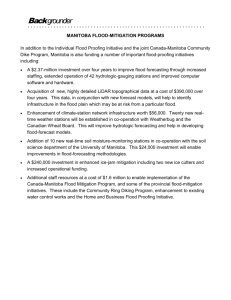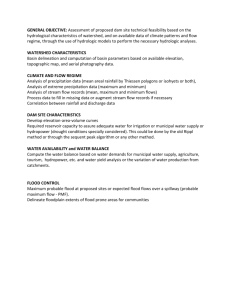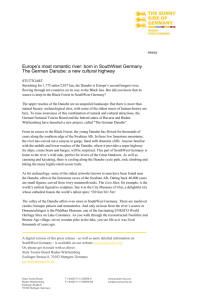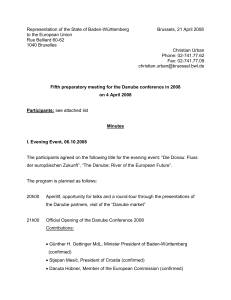Annex 3
advertisement
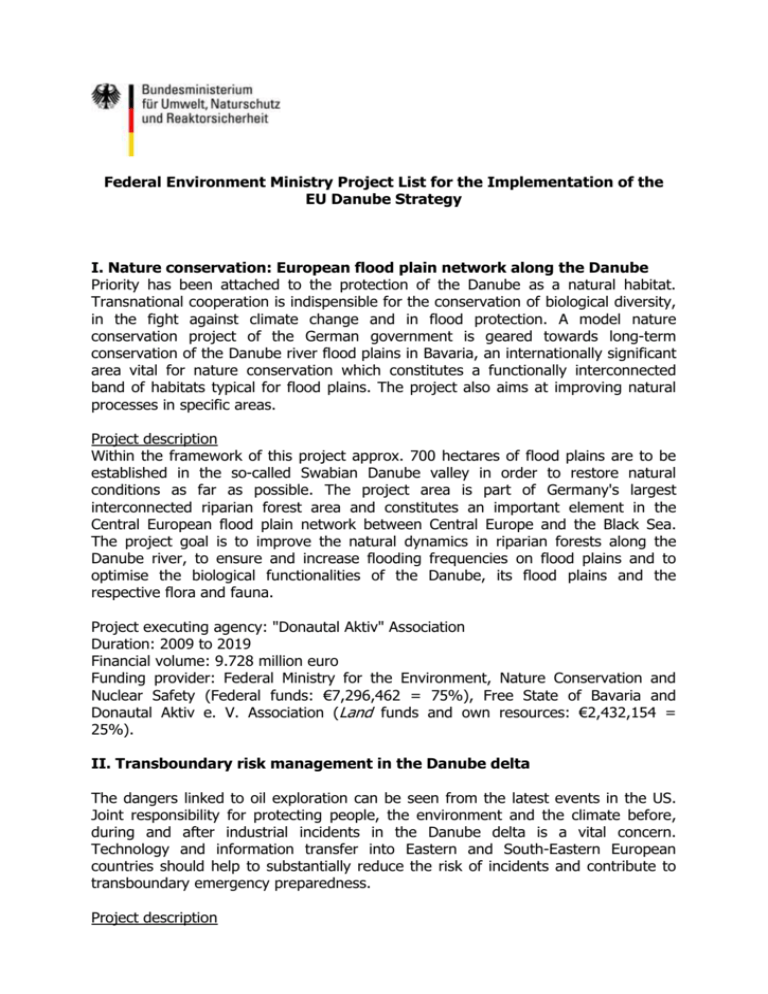
Federal Environment Ministry Project List for the Implementation of the EU Danube Strategy I. Nature conservation: European flood plain network along the Danube Priority has been attached to the protection of the Danube as a natural habitat. Transnational cooperation is indispensible for the conservation of biological diversity, in the fight against climate change and in flood protection. A model nature conservation project of the German government is geared towards long-term conservation of the Danube river flood plains in Bavaria, an internationally significant area vital for nature conservation which constitutes a functionally interconnected band of habitats typical for flood plains. The project also aims at improving natural processes in specific areas. Project description Within the framework of this project approx. 700 hectares of flood plains are to be established in the so-called Swabian Danube valley in order to restore natural conditions as far as possible. The project area is part of Germany's largest interconnected riparian forest area and constitutes an important element in the Central European flood plain network between Central Europe and the Black Sea. The project goal is to improve the natural dynamics in riparian forests along the Danube river, to ensure and increase flooding frequencies on flood plains and to optimise the biological functionalities of the Danube, its flood plains and the respective flora and fauna. Project executing agency: "Donautal Aktiv" Association Duration: 2009 to 2019 Financial volume: 9.728 million euro Funding provider: Federal Ministry for the Environment, Nature Conservation and Nuclear Safety (Federal funds: €7,296,462 = 75%), Free State of Bavaria and Donautal Aktiv e. V. Association (Land funds and own resources: €2,432,154 = 25%). II. Transboundary risk management in the Danube delta The dangers linked to oil exploration can be seen from the latest events in the US. Joint responsibility for protecting people, the environment and the climate before, during and after industrial incidents in the Danube delta is a vital concern. Technology and information transfer into Eastern and South-Eastern European countries should help to substantially reduce the risk of incidents and contribute to transboundary emergency preparedness. Project description A transnational project with Romania, the Republic of Moldova and Ukraine is geared towards establishing transnational incident management, improving industrial risk potential prevention, developing harmonised safety standards for industrial plants and minimising impacts in case of an incident through joint crisis management. To meet these goals, measures are being taken to prepare the introduction of safety technologies in these countries, in particular with a view to the experience gained in this field in Germany. Project executing agency: Germany, Romania, Ukraine, Moldova Duration: 2010-2013 Financial volume: ca. 700,000 euro Funding provider: UNECE Convention on the Transboundary Effects of Industrial Accidents; financing of project application by Germany III. Flood protection in the Danube region Flood protection is a central water management issue. EC Directive 2007/60/EC on the assessment and management of flood risks must be implemented in EU countries in the coming years. For this purpose coordination within river basins is necessary. In coordination with the Land Baden-Württemberg the Federal Environment Ministry subcontracted the preparation of an INTERREG IV B project application for the Maritsa river basin in Bulgaria. Within the framework of this project, flood risk maps are to be drawn up to support policy makers and administrations in their decisionmaking process on future investments and land use. The project is to be developed together with other partner countries. Initial talks have been held with competent experts in Bulgaria.


